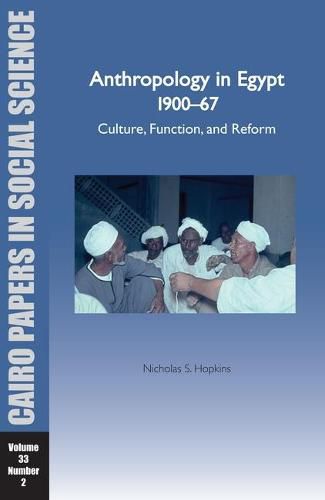Readings Newsletter
Become a Readings Member to make your shopping experience even easier.
Sign in or sign up for free!
You’re not far away from qualifying for FREE standard shipping within Australia
You’ve qualified for FREE standard shipping within Australia
The cart is loading…






Anthropology as a discipline came to Egypt around 1900, as foreign anthropologists reported home on the culture they found. Gradually the intellectual approach was influenced by the functionalist school, stressing that a society consists of interlocking parts. As Egyptians took the lead in anthropology, in the 1930s, the discipline entered into the debate about the need to reform Egyptian society and culture especially in the rural areas, against a general background of functionalism. This approach dominated through the 1960s, when there was a break in Egypt because of the Six-Day War and in world anthropology because of the emergence of new intellectual models. This study traces the evolution of anthropology in Egypt through the stories of its practitioners such as Blackman, Galal, Evans-Pritchard, Hocart, Abbas Ammar, Hamid Ammar, Berque, Abou Zeid, el Hamamsy, Uways, and their contemporaries, showing their challenges and accomplishments.
$9.00 standard shipping within Australia
FREE standard shipping within Australia for orders over $100.00
Express & International shipping calculated at checkout
Anthropology as a discipline came to Egypt around 1900, as foreign anthropologists reported home on the culture they found. Gradually the intellectual approach was influenced by the functionalist school, stressing that a society consists of interlocking parts. As Egyptians took the lead in anthropology, in the 1930s, the discipline entered into the debate about the need to reform Egyptian society and culture especially in the rural areas, against a general background of functionalism. This approach dominated through the 1960s, when there was a break in Egypt because of the Six-Day War and in world anthropology because of the emergence of new intellectual models. This study traces the evolution of anthropology in Egypt through the stories of its practitioners such as Blackman, Galal, Evans-Pritchard, Hocart, Abbas Ammar, Hamid Ammar, Berque, Abou Zeid, el Hamamsy, Uways, and their contemporaries, showing their challenges and accomplishments.